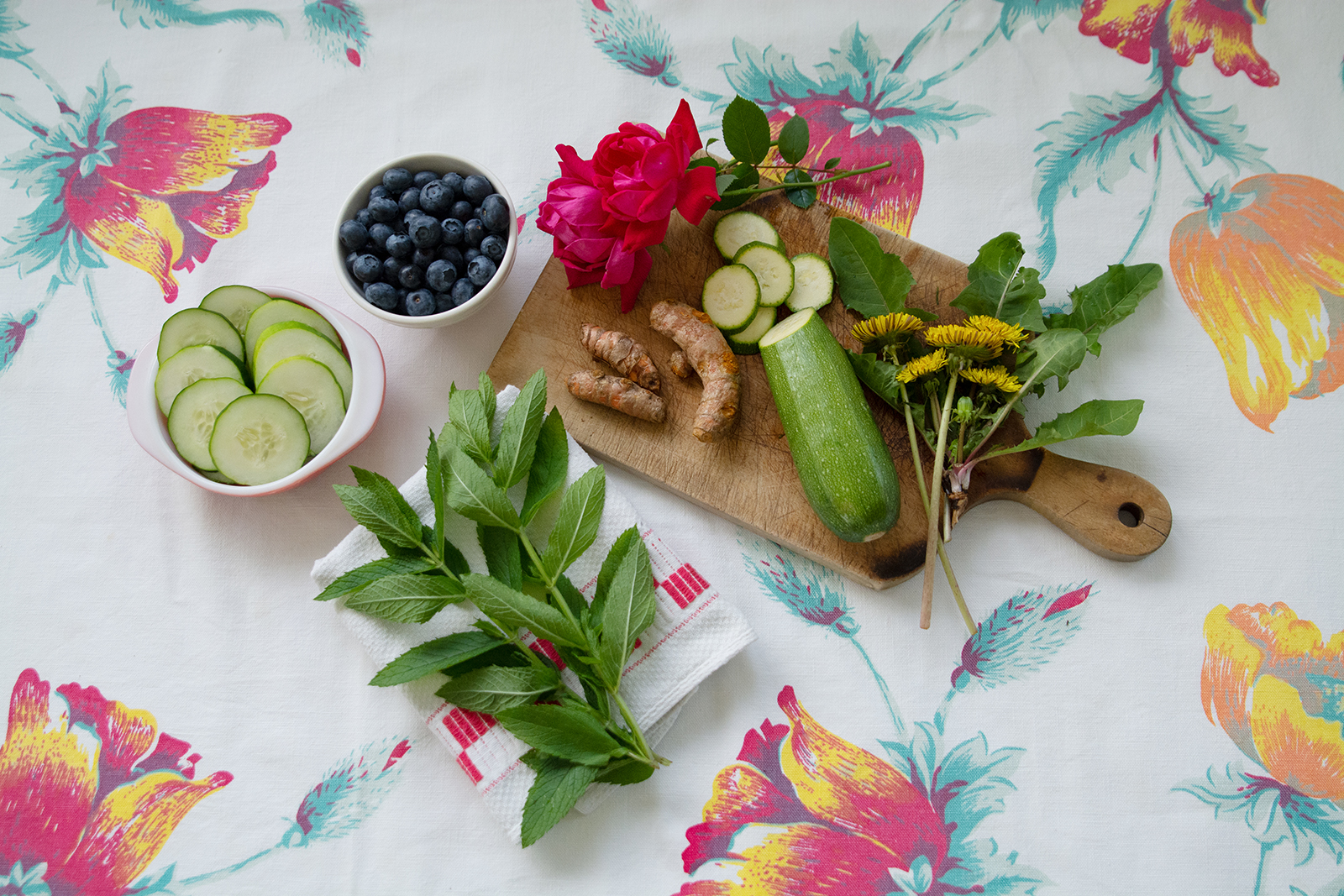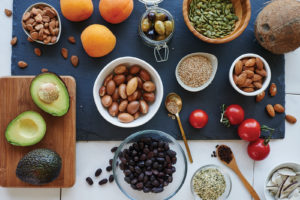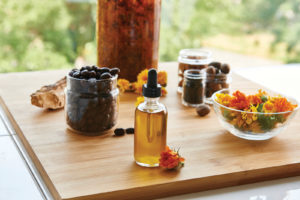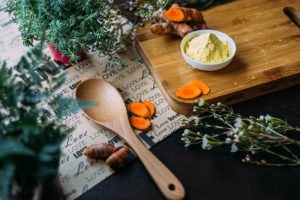The garden possesses the power to deliver more than dinner. It also serves as a great resource for taking care of your body and your largest organ, your skin. In fact, as the beauty industry hypes the rise of the farm-to-face movement and boasts about rejecting chemicals, parabens, dyes, and animal-testing, those who raise plants know that natural beauty awaits just beyond the backdoor.
“Your body will tell you what you need, but it doesn’t scream, it whispers, so try to listen,” says Wendy Rowe, author of Eat Beautiful, which features recipes, ingredients, and tips on natural beauty.
And when it comes to using things grown in your garden or purchased at a farmer’s market, the key consideration is safety. “Natural is an ambiguous term, so the main concern with using ingredients one might grow or find in nature is to ensure the ingredients will not harm the skin,” says Dr. Rachel Nazarian, a board-certified dermatologist at Schweiger Dermatology Group in New York City. Nazarian says her main goal is to ensure people are comfortable and well-versed in what they’re using. A long list of plants, vegetables, fruits, and even weeds can be used to take care of your skin. With Nazarian’s and Rowe’s help, we offer seven easy-to-grow plants and ingredients along with accompanying recipes that benefit all skin types.
Natural ingredients like fruits and herbs are packed with properties and nutrients that are beneficial to your skin. Left and center photos by Cayla Zahorn, taken for the book Plant-Powered Beauty by Amy Galper and Christina Daigneault. Right photo by Chinh Le Duc.
1. Sunburn Balm
An anti-inflammatory tool and high in vitamin C and caffeic acid, cucumbers offer an instant tightening and refreshing effect, according to Rowe’s book. They’re 95% water, and that makes them a great ingredient for a face mask. She says they also treat sunburns. To create a sunburn balm, simply blend a chilled cucumber to a smooth consistency and leave it on the affected area for about 15 minutes.
2. Petal Power
With antibacterial properties, roses nourish, hydrate, and balance your skin and provide a pleasing scent. To take advantage of a rose’s skin benefits, make rosewater; it’s easy to make and is helpful for dull and/or sensitive skin. To make, pick a handful of petals and soak them in eight ounces of warm mineral water. Then drain the petals from the water, smash them, and return to the mix, allowing for another night of cooling in the refrigerator. Nazarian recommends a spritz of this water for sensitive or irritated skin.
3. Glow Goodness
Zucchinis carry most of their nutrients — vitamins A, C, and K — in their skins (so never peel). These properties and the fact that they are 95% water helps with anti-aging measures and deliver a nice glow. Nazarian suggests using the vegetable to make a mask. To do that, mix 2 to 3 teaspoons of grated zucchini, 1 teaspoon of olive oil, 1 teaspoon oat flour, and 1 egg yolk. Leave the mixture on for about 15 minutes and then rinse.
4. Bright Berries
Both skin professionals mentioned blueberries as a go-to favorite, explaining the small berries serve as a rich source of vitamin C, which boosts collagen and skin elasticity. According to Rowe, this berry can brighten dull or sun-damaged skin without causing oiliness or irritation. It’s also known for strengthening damaged blood vessels, which can help with conditions such as rosacea. Nazarian recommends mixing a handful of berries (five to six, fresh or frozen) with a tablespoon of oatmeal and a teaspoon of honey for a firming and brightening mask. If you are worried about the little blue orbs’ ability to stain, add in a spoonful of plain yogurt to calm the color.
5. Freshen Up
Mint helps calm on the inside and the outside, coming to the rescue of both digestive issues and skin irritation. With vitamins A and C and high in calcium and iron, mint can be added to tea, ice cream, or mashed with a banana for a face-calming mask. Bonus feature: It’s easy to grow in a pot or garden.
6. Yellow All-Star
Dandelions may annoy yard purists everywhere, but the underappreciated golden plant aids with a range of skin issues, including eczema, acne, and a stubborn blemish. Nazarian also says there’s evidence to support that dandelions are naturally anti-inflammatory, and because they are antioxidants, they may offer anti-aging benefits. It’s also easy to make a serum out of it. To do so, take five to six dandelions, a teaspoon of your favorite vitamin capsule, and mix it with a 1/2 cup of aloe vera in a food processor. Let the mixture sit for an hour after blending. Then strain the excess liquid and store it in the fridge. Use the cooling, vitamin-packed serum to tackle any annoying outbreaks.
7. The Golden Spice
A key fixture of Ayurvedic medicine with a long list of health benefits (anti-inflammation, heart disease, depression, brain health), according to the National Center for Complementary and Integrative Health, turmeric can also aid the skin by adding it to your diet, taken in supplements or simply mashed into a paste mixed with a soft yogurt or cream base. To grow this spice at home, all you need are fresh turmeric rhizomes, which you can get at an Asian grocery store or purchase online, a large planter pot, and plenty of sunlight. They grow best indoors in the late winter but can be moved outside when the weather is warm enough. Nazarian credits turmeric for treating an array of skin issues, including discoloration, psoriasis, eczema, and acne scarring, but it can easily stain the skin, so it must be taken in small doses. To create a face mask, mix 3 tablespoons of milk or yogurt, a teaspoon of turmeric, and a few drops of honey, and let the mixture dry for 20 minutes before applying.




